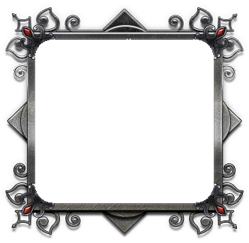Part Two
They walked for two lunar cycles, stopping at every village and township along the way. Everywhere they went, they were welcomed with open arms by the villagers, who loved the blind old man. Though Saw’ah did not speak a word of their language initially, through listening to Sam’uel’s stories around the campfire and being tutored by the man during the day as they walked, Saw’ah soon learned to speak it well. In fact, his knowledge of his new language and his ability to express himself in it was soon much better than in his native tongue, which he had only learned to speak in the guttural form, having grown up around the roughest sorts and not expected to answer his mistress with anything but, “yes, mistress”.
Saw’ah soon found that he enjoyed the sudden freedom, the open air, sunshine, the forests, rivers and mountains, and he enjoyed Sam’uel’s company. He had never experienced being outside the walls of the city in which he had been born, and so the sudden change was both exhilarating and overwhelming. For the first time in his young life he was free, and he reveled in it. He swung a staff with his right arm and tossed stones, hoping to strengthen it, he ran through the meadows chasing butterflies, he dove into the icy waters to try and catch fish, he slept on the hard ground wrapped in his cloak and he foraged for mushrooms and berries, guided by Sam’uel. Even the cold and rainy nights could not dampen his enthusiasm.
There was but one thing that could ruin his mood, and that was other people.
He soon discovered that in every village or town they stopped, there was always a bully. A boy or girl bigger or richer than the rest, who enjoyed picking on those deemed weaker and who had a group of followers eager to join in. Saw’ah found that when he entered a town, he would be sized up. If the bully thought he or she could take him on, he would be made a target during his stay. If not, then the bully would turn to the usual victim. In either case, Saw’ah found he could not restrain himself for long and he would be compelled to do or say something. Although Sam’uel urged restraint, quite often Saw’ah would do his best not to fail his friend and yet, should the bully push too far, Saw’ah would snap and fists would fly.
Though the visit would then be cut short, Sam’uel never punished the young boy, no matter how much he was urged to do so. He would merely smear a healing ointment on the boy’s cuts and bruises and they would be on their way.
Saw’ah eventually asked why he wasn’t punished and Sam’uel said, “I understand your heart and your mind. This is not your fault and you do not pick the fights. Why should I punish you?”
“But I don’t control my temper.”
“I know. Which is why I am bringing you to the Grand Flock in Dilmunia.”
“You—you’re going to leave me?” Saw’ah asked with tears in his eyes.
“I must, if you wish to be a warrior. They will train you and more importantly, they will temper you, so that you always remain in control. You have a great future, young Saw’ah, and I will not deprive you of it, no matter how fond I am of you and how selfishly I may wish for you to stay with me.”
Saw’ah found it difficult to sleep that night, but stared at the stars, thinking. He had come to love the blind storyteller, having been shown love for the first time in his life. The thought of being separated from his was like a stab in his heart, yet he understood Sam’uel’s reasoning. He swore to himself that he would make the old man proud and that he would become somebody.
By the week’s end, he found himself in the headquarters of the Grand Flock, staring in awe at the wealth and splendor around him and at the huge black tulip inlaid on the floor in marble, outlined in silver. Twelve mighty pillars supported the ceiling, which seemed to reach the heavens. All he saw were mighty warriors clothed in simple white robes, healers and teachers in brown robes and acolytes in black robes. All had the tulip embroidered on their left shoulder. Sam’uel stood a little ways off, talking earnestly with a teacher, who was shaking his head.
“He’s not even from Dilmunia. Does he follow the path of Angelica?” the teacher asked.
“He has been raised in a Vittori society, though I doubt that religion was taught to him. Rather, he was aware of it insomuch as he knows of the basic tenets and beliefs.”
“But—this is most unusual, Sam’uel. We don’t even allow our Barons to bring us a cousin five times removed from another country without good cause. What would they say to this?”
“I know. But Mahmold promised me a boon, if you recall. One that I have not yet claimed.”
“Sam’uel,” said the other voice in warning. “Think on what you’re asking.”
“I have thought on this. Angelica led me to save this child. He has a mighty future ahead of him and I wish for him to be trained here.”
“Very well. I will send a message to Duke Usifan and await his response. In the meantime, why don’t you rest in your old room?”
In the end they spent three perfect days there, with Sam’uel introducing him to everyone and showing him around the buildings, from the library to the practice yard to the herb gardens. Saw’ah knew then that no matter what, he had to stay and study there. He knew that the Grand Flock would give him the training and education he needed to become what he wanted to be.
Finally the response came from Usifan: Saw’ah could stay, but as a helper rather than an acolyte. The difference was subtle, as he would be fed, clothed, educated and trained, but he would not be guaranteed a place within the order at the end of his time there, unlike the acolytes. Sam’uel’s disappointment was palpable, but he did his best to be grateful. For his part, Saw’ah did not care, as he had given no thought to becoming a member. All he wanted was the skills of a warrior so that he could wage war on slave owners back in his homeland.
That evening Sam’uel said his farewell, reminding his young friend to learn the ways of the Qin and to always listen to his teachers. He reminded him to control his temper, warning the boy that if he committed a serious infraction, boon or no boon, he would be cast out. Saw’ah nodded earnestly, as he cried. He hugged Sam’uel fervently, not wishing the only father figure he had known in his life to leave. But leave, the storyteller must, on some business for the crown. And so the two said their farewells and did not meet again for many years.
Saw’ah spent eight years in total in the Grand Flock, learning to read, write, wage war, fight with all manner of weapons and to survive in the forests and the deserts. He learned the courtly ways of dress, deportment and conversation, and could pass himself off as an aristocrat with ease if he chose to. He learned to show compassion to the weak, the infirm and the disadvantaged, never forgetting his own beginnings. He learnt the value of diligence, patience, charity and kindness, and strove always to exhibit those qualities. He became a fervent follower of Angelica, recalling Sam’uel’s words of who had guided him to save a young slave’s life, and he swore to uphold her teachings and protect her followers from those of Daemon.
The Duke, ever mindful of those who studied at the Order, received regular reports on the young man Sam’uel had brought back, and took an interest in the young man. Hearing good reports from the weapons masters, he sent Saw’ah out on missions to the border, where the young man proved himself time and again.
Usifan, always knowing the value of a righteous and pure warrior of faith, sought for a way to reward the boy and keep him in the kingdom, without upsetting the aristocracy. In the end, he sponsored the boy to participate in the Grand Feast Game, which he won. This allowed Usifan to reward him in the ceremony that evening.
It was the highlight of Saw’ah’s life, incomprehensible to the young man who had been sold as a slave, crucified and then saved by a blind storyteller. He walked into the grand hall of the Palace to the shouts and applause of the gathered merry-makers, barely feeling the injuries received during the contest. More than one maiden tried to kiss him and many a man embraced him. He reveled in the praise and affection that evening, though none compared to the face he saw next to the Duke himself—Sam’uel. Saw’ah all but ran to the old man’s side, almost forgetting to salute the Duke, before he wrapped Sam’uel in a mighty hug, almost crushing him. Usifan smiled gently at the display of affection and then bade Saw’ah kneel for the pledge.
With his sword at his feet and helmet in his arms, the once-slave and now-champion swore his fealty to Duke Usifan and to the Kingdom of Dilmunia. In return, he was given control of a small outpost on the border between Dilmunia and his old homeland, with enough men to properly secure the borders.
Later, in the Duke’s library, Usifan had told Saw’ah the reason for that new outpost being created. Slave traders had been making incursions into the border of Dilmunia, kidnapping children and solitary travelers. Saw’ah’s mandate was to vigilantly guard Dilmunia against such men and women, showing them no mercy. If he could prove himself, then he would be raised in rank, until one day he would become a Baron of the Realm.
Saw’ah grinned; this was more than what he had wished for as a child and he would take great delight in capturing as many of those monsters as he could.
He arrived at the misshapen, crumbling old fort the very next week and immediately laid plans in rebuilding it and shoring up the defenses. He sent messages to all the Headmen of the villages 5 days ride in each direction along the border, inviting them to the fort. Together, they drew up plans for a proper defense force and a system whereby one village could request the aid of the others quickly. He personally undertook the training of the villagers-both men and women, teaching them how to fight with staff, rake, copper pot and cast iron skillet—whatever they had on hand. In return, the villagers ensured he and his men were well-fed and amply-clothed.
His name grew back in the capital, along with tales of his daring exploits. The would-be slave traders soon ceased to make incursions, the sight of their fellow slave traders impaled on the trees along the borders warning enough. The citizens of Dilmunia were sage once more and Saw’ah was rewarded with the title ‘Baron’,
He remained in his fort—now well built and comfortable in any weather, and planned his next campaign. He waited until Sam’uel came on one of his frequent visits and then he announced his plans. He would teach a select few of his men the language and dress of his homeland and together they would make incursions into that damnable place to free as many slaves as they could. They would have to be silent and it could never be known that it was they who had done it, lest it drag Dilmunia into war, but if they succeeded, then they would know they were doing Angelica’s work and that she would be pleased.
“What should we do with the slaves we free?” One of the men asked.
“If they have no family to return to, then we bring them here and offer them something they have never had: a choice. They can choose to be a farmer, a tailor, a cleric or a warrior. The important thing is that they realize their life is now theirs, to do with as they please.”
All of the men banged their tankards of ale on the table in celebration, with many volunteering to be part of his taskforce. Saw’ah looked over at Sam’uel and saw the old man’s face was shining with joy, though he said nothing. He did not need to, Saw’ah knew exactly how the old man felt. In fact, Saw’ah had begun to dream of the day when he could rescue a little tyke and train him as he had been trained, completing the circle.
The end
If you've enjoyed it, please click here to join us at our Tavern and talk to Saw'ahya








